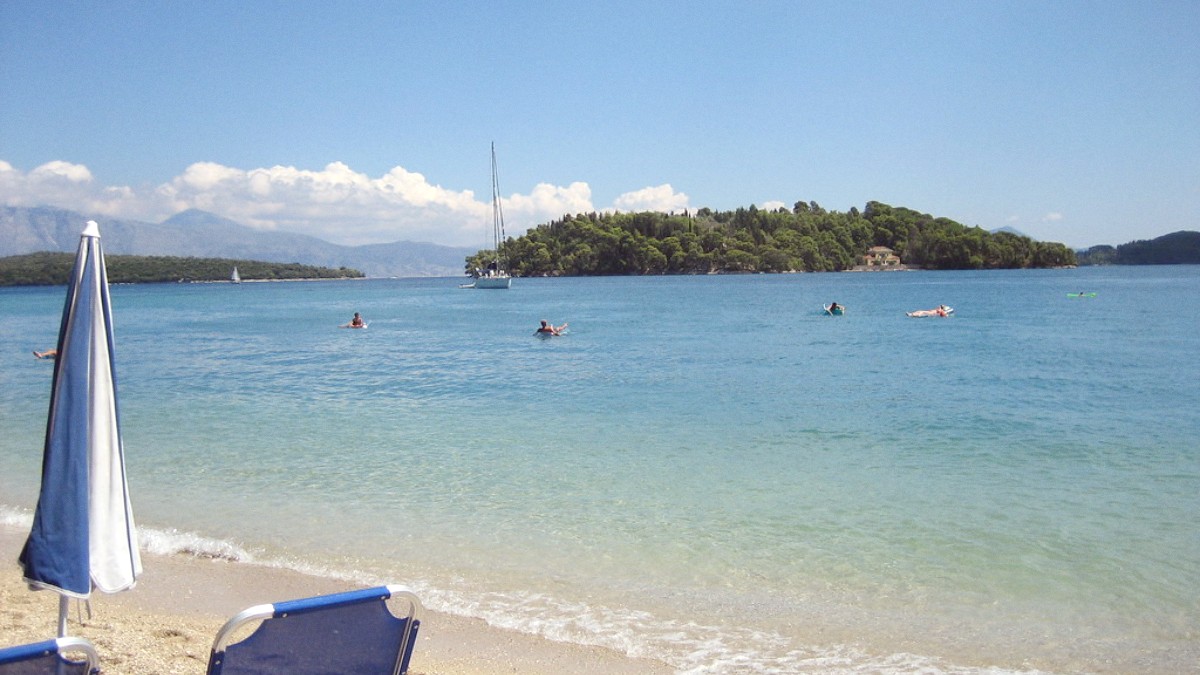
Ionian Islands, Greece
Lefkada has a Mediterranean climate, marked by hot, dry summers and mild, wet winters. Summer (June - August) is peak season, with temperatures between 25°C to 32°C (77°F to 90°F) and warm sea. Autumn (September - November) brings a pleasant shift, with September maintaining warm temperatures before gradual cooling. Rainfall increases in October and November. Winter (December - February) is mild and wet, with temperatures from 8°C to 15°C (46°F to 59°F).
Spring (March - May) is a delightful period for a visit, with temperatures steadily rising from 12°C-17°C (54°F-63°F) in March to 20°C-25°C (68°F-77°F) by May. The sea becomes suitable for swimming by late May. Lefkada experiences no monsoons or hurricanes. Heatwaves occasionally push temperatures above 35°C (95°F) in August. During such times, drink plenty of fluids, seek shade, and limit outdoor activities during the hottest parts of the day.
Greece, as part of the Schengen Area, follows common entry rules for many nationalities. Check the IVisa or VisaHQ websites for specific needs.
US, Canadian, UK, and Australian citizens do not need a visa for stays up to 90 days within any 180-day period across the Schengen Area. A valid passport, proof of onward or return travel, and proof of sufficient funds are necessary. Comprehensive travel insurance World Nomads or SafetyWing comes highly recommended for all visitors, even if not strictly mandated. No general entry fees apply.
Minimum 3 months beyond departure
Issued within the last 10 years.
At least two blank pages.
Demonstrate financial capacity
Show financial means for your stay.
Proof of confirmed return or onward travel.
For unforeseen events
Medical emergencies, trip disruptions.
Coverage is a requirement for applicants.
Greece uses the Euro (€). ATMs are widely available in Lefkada Town, Nidri, Vasiliki, and other larger villages. Major credit and debit cards (Visa, Mastercard) receive acceptance in hotels, larger restaurants, and shops. However, smaller establishments, local markets, and some cafes may prefer or only take cash. Carry some cash for small purchases, especially in rural areas or for street food. Inform your bank of your travel plans to avoid card issues.
Tipping is not mandatory in Greece but receives appreciation for good service. In restaurants, round up the bill or leave 5-10% for good service. If paying by card, leaving cash for the tip is helpful. For taxis, round up the fare to the nearest Euro. For hotel porters, consider €1-€2 per bag. For housekeeping, €5-€10 per stay for longer visits.
Hostel/basic guesthouse, street food, local buses, free activities.
Mid-range hotel/apartment, tavernas, shared rental car, paid activities.
Upscale hotels/villas, fine dining, private transfers, exclusive experiences.
Seasonal variation, pre-booking can secure better rates.
Distance-based pricing for inter-village travel.
Prioritize your health and safety for a worry-free trip. Lefkada comes across as a safe destination, but preparing for common scenarios is always wise.
Be aware of potential health issues and take steps to prevent them.
Lefkada offers sufficient healthcare services for tourists.
A comprehensive travel insurance policy comes highly recommended for all travelers. It offers protection against various unforeseen events.
Lefkada’s climate shapes your clothing choices. Consider comfort, breathability, and versatility for different activities and times of day.
Lightweight, breathable fabrics (cotton, linen), shorts, t-shirts, sundresses, Swimsuits. A Light jacket or long-sleeved shirt for evenings.
Layers are important. T-shirts, Long-sleeved shirts, light sweaters, a light to medium jacket or Waterproof shell. Swimsuits still applicable.
Warmer layers including sweaters, fleeces, waterproof jacket. Long pants and closed-toe shoes are necessary. An umbrella is also recommended.
Modesty for Religious Sites
When visiting churches or monasteries, modest attire is important. Shoulders and knees should remain covered. For women, a Light scarf or sarong comes in handy for quick cover-up. Men should avoid shorts or sleeveless tops. Local people appreciate this show of respect.
For hiking, pack lightweight Hiking pants or shorts and Moisture-wicking shirts. For swimming/beach, bring multiple swimsuits, a cover-up, and a Quick-drying beach towel.
Formal attire is not generally needed unless for specific upscale events.
Comfortable walking sandals or breathable Sneakers are good for towns, villages, and lighter trails.
Flip-flops for general beach use. Water shoes are useful for pebble beaches or against sea urchins.
Sturdy hiking shoes or boots come in handy for significant trekking or rough coastal paths.
Keep your travel documents organized and secure. This mitigates stress during your journey.
Stay connected and powered up with the right electronic gear.
Greece uses Type C and Type F sockets (230V, 50Hz). A Universal travel adapter comes recommended for non-EU travelers. Bring Portable chargers and power banks for devices.
Unlocked smartphones work with local SIM cards (Cosmote, Vodafone, Nova). Consider VPN services like NordVPN or ExpressVPN. An Airalo eSIM is also a good option.
A good Smartphone camera often suffices. Enthusiasts might consider a Mirrorless or DSLR from B&H Photo. A Lightweight tripod for sunsets is good.